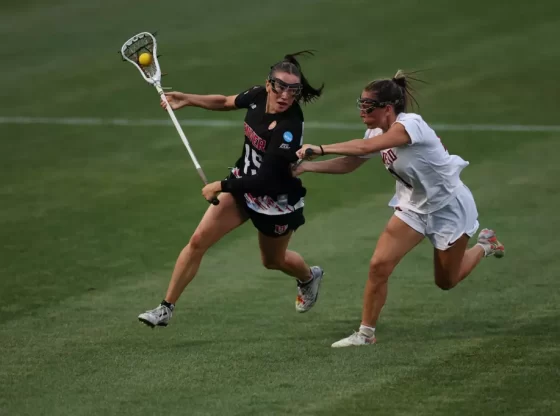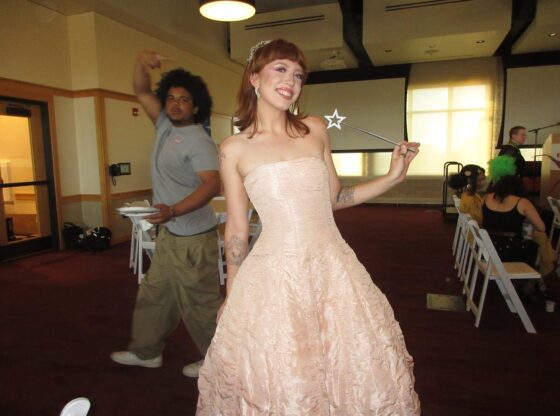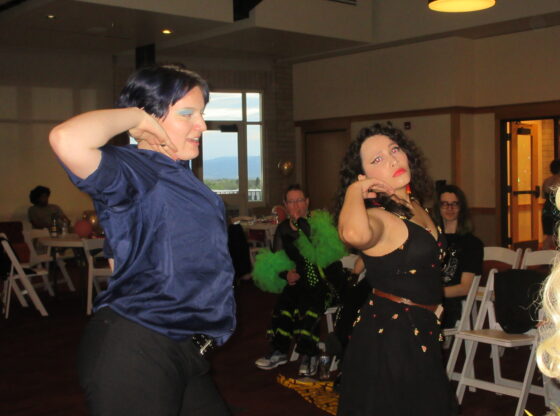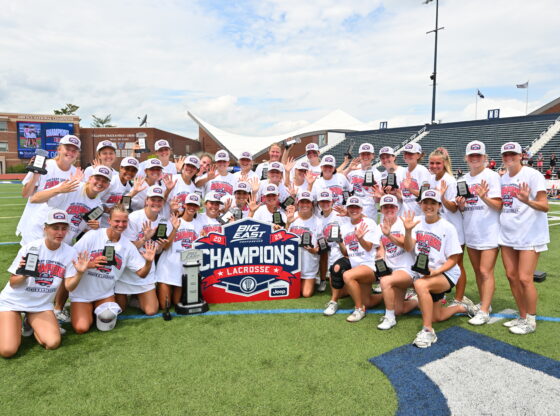After seeing many of the various productions at the Newman Center for the Performing Arts, such as the recent Music Man, one may wonder what it takes to create such a large performance.
Rachel Rincione, the director of the latest Lamont production, The Music Man, gave the Clarion some inside information about the complex, yet rewarding process.
Rincione received her BFA from Chapman University of California and holds an Master of Music in Opera from the DU Lamont school of Music. The Music Man is her first major production at DU since other theater projects in her college years. She has been performing at Lamont since she received her degree.
Q: How did you become the director for The Music Man?
A: I taught a two-week acting course at Lamont in the fall and they hired me to direct the Music Man.
I always tell the director of programs that I’m willing and able if they want to hire me back on to do another project.
Q: Did The Music Man differ from other projects that you’ve done before?
A: Yeah, it was really my first traditional project, but I tried to keep it from staying too traditional.
For example, we decided to use the entire theater for acting rather than just the stage.
Q: Because you’re used to working with other forms of theater, were there other changes directing a musical?
A: If you’re an artist, you’ll find certain characteristics of each type of artist. When approaching a musical, the actors always try to find out what their characters are like and how they’ll approach the dialog.
Singers concentrate on their solos and tone. It was very interesting to work with the singers and bring my acting background to them. I think they were really successful in character development.
Q: The Music Man seems like a very time-consuming project. How long have you been working on the musical?
A: Well, this show was a little different than other projects. We really had to adhere to the schedule that the school gave us. We started working on it around June of last year. Shows usually take months to finish.
Q: Were there any differences in the three different showings of The Music Man?
A: There is always a different vibe to each show. The last showing was more of comfortable version.
The show also featured a different actor for the part of Harold Hill. If you want to get a different feel for each cast member, I would recommend coming again. The upcoming opera will have a different cast.
Q: I noticed that a Children’s ensemble was included in the play. How did you find these off-campus actors?
A: We were looking for a young boy to play a character that you usually cannot find in college.
I asked Zach Singer if he knew any possibilities and, soon enough, we had an entire performance class of children to play parts.
Q: What was one of the most difficult things about directing The Music Man?
A: The performance program, itself, is in the works in the new building. We don’t really have anything set. It was really hard to gather a production team and gather as much help as we did on our limited resources.
One of the goals for this show was to get the ball rolling on schedule. We get tons and tons of new singers every year so the program is really growing.
Q: Did the musical remain true to the original plan?
A: The play remained true. When we started the show, we had a clear concept of what we wanted.
The only change was the increased smoothness of the scenes. Also, actors always tend to change things in the plays and that’s the fun part of live performances.
Q: What was the most fulfilling thing you received from the Music Man?
A: When I opened the show and let the cast run it, I was able to sit back as an audience member and see how far they had come. They had come really far as an ensemble.
Q: Can we look forward to any upcoming projects?
A: Not that I know of at the moment. The Music Man just fell out of the sky so, hopefully, I’ll be directing some scenes in the spring or doing other projects that come about randomly.
Q: Where do you typically find your actors for your projects?
A: Usually, performance majors are required to be in a class for the projects. They audition the second week of school for all of the programs in a year.
The fall show is, typically, the undergraduate show because the graduate students are usually in the spring opera. The whole process is a lot of hard work for someone going to school at the same time.
Q: Is there any room for other majors to participate in one of your projects?
A: Yes, anyone can audition for a part. You need to know when the times and dates are for the auditions. We love to see a lot of diversity in our shows.
Q: Do you have any advice for any aspiring directors or theater students?
A: Have as many tricks in your bag as possible. Try to audition as much as you can. You can work on your craft every single day. Tap all of the resources available here. I’m actually a performance person, but I also direct to show off the other tricks in my bag.
Q: Thanks for your time, Rachel. Are there any final words you wish to say to the readers?
A: Thanks to the cast and crew for such a great show and sorry to the people that didn’t see it.
The Sunday showing was full and some people were not allowed into the performance.










